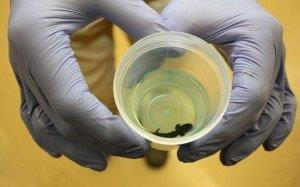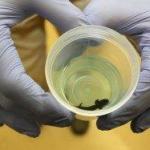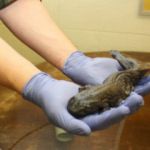Williams is helping a vulnerable amphibian make leaps and bounds toward species recovery. The eastern hellbender salamander is North America’s largest salamander but is declining in population due to pollution and loss of habitat. The hellbender is listed as an endangered species in Ohio and is a federal species of concern.
Williams recently funded a new lab at West Liberty University in West Virginia that will study conservation of wildlife such as the hellbender.
The Williams Sustainable Wildlife Management Lab will include a rearing facility for baby hellbenders, where they will be hatched from eggs and grown until they are big enough for release.
“More than 300 Hellbenders are now housed in the new lab and many were hatched and raised at West Liberty. They will be reintroduced into the streams and rivers of West Virginia,” said Dr. Joe Greathouse, WLU assistant professor of biology. “These animals are rare throughout their range and are a candidate species for listing under the Federal Endangered Species Act.”
The Williams gift also funded camera survey equipment and a bi-fuel truck for students to study habitat use of pipeline right of way (ROW) by bobcats, foxes and golden eagles to determine if ROW creates sustainable habitats for wildlife.
Survey equipment also was purchased for students to study the benefit of ROW as potential habitat for the monarch butterfly.
Williams has funded additional hellbender conservation projects in Ohio, including a stream crossing and hellbender rearing colonies at the Toledo Zoo and Penta Career Center. Currently, 1,100 young Hellbenders are being head-started by project partners, with 350 destined for release in both 2016 and 2017.


